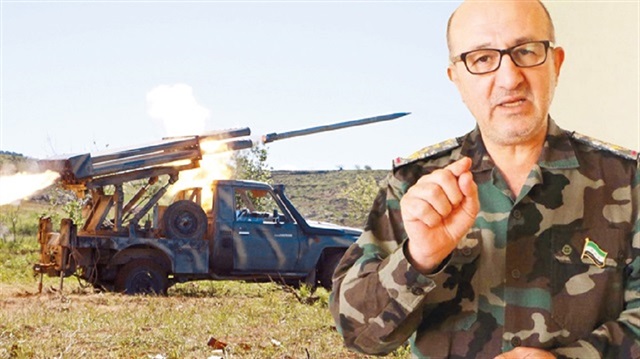

Zahir al-Sakit
Former Syrian chief of the Chemical Weapons Department says Assad provided the PKK/PYD with chemical weapons
The Kurdistan Workers' Party (PKK)/Democratic Union Party (PYD) terrorist organizations, which received approximately 4,000 truckloads of ammunition and arms from the U.S., have obtained chemical weapons from the Bashar al-Assad regime. Gen. Zahir al-Sakit, who served as the chief of the Chemical Weapons Department in Syria before 2012, said that the terrorist organization made a chemical weapons deal with the Assad regime on Aug. 31, 2015.
Sakit, who shared critical information obtained from intelligence sources with Yeni Şafak daily, noted that the Assad regime gave the PKK large amounts of “mustard gas” following the agreement. According to former General Sakit, who left the ranks of Assad army following the civil war, 100 missiles with mustard gas capsules attached to the ends are in the hands of the PKK/PYD.
The PKK is listed as a terrorist organization by Turkey, the European Union and the United States. The PKK has been conducting armed violence in the southeastern part of Turkey since 1984. More than 40,000 people, mostly civilians, have been killed in the three-decade long conflict.

U.S. aware of PKK/PYD chemical weapons
“The first article of the chemical agreement between Assad and the PKK in Damascus was to use the weapons against Turkey. The last delivery was in Deir ez-Zor. The U.S. is aware of the chemical ammunition that the PKK/PYD has. One of the aims of the regime that supplied mustard gas to the PKK was to find new partners in their chemical crime file. The United Nations has 32 files regarding the use of chemical weapons by the Syrian army,” said Sakit.
“Daesh also has chemical weapons”
“The PKK is not the only group Assad has given chemical weapons to. The regime supplied Daesh with raw chemical materials in Hama and Homs. Daesh used a significant portion of these chemicals at Mare and al-Bab. Daesh, despite allegedly clashing with the PKK, did not use a single chemical weapon against them. The same terrorist organization used chemical weapons repeatedly against the Turkish Armed Forces (TAF) and Free Syrian Army (FSA) during Operation Euphrates Shield. This is what the regime wanted,” he added.
Hidden in Manbij
Yeni Şafak asked Abu Muhanned, a member of the Ceyh al-Suwvar Brigade of the PYD. Confirming Sakit's assertion, Muhanned said that the PKK/PYD had hidden such chemical mixtures close to the Tishrin Dam in Manbij, and that the mixtures were formed into capsules suitable for use with missiles in these workshops. He added that these workshops were close to Jarabulus, and stated that the location was likely chosen in order to be able to respond quickly to Turkey’s Manbij operation.
#Syria
#Manbij
#PKK
#PYD
#Assad
#Turkey
#Zahir al-Sakit






